Recovering from coronavirus: Three harrowing stories of surviving Covid-19
- Published
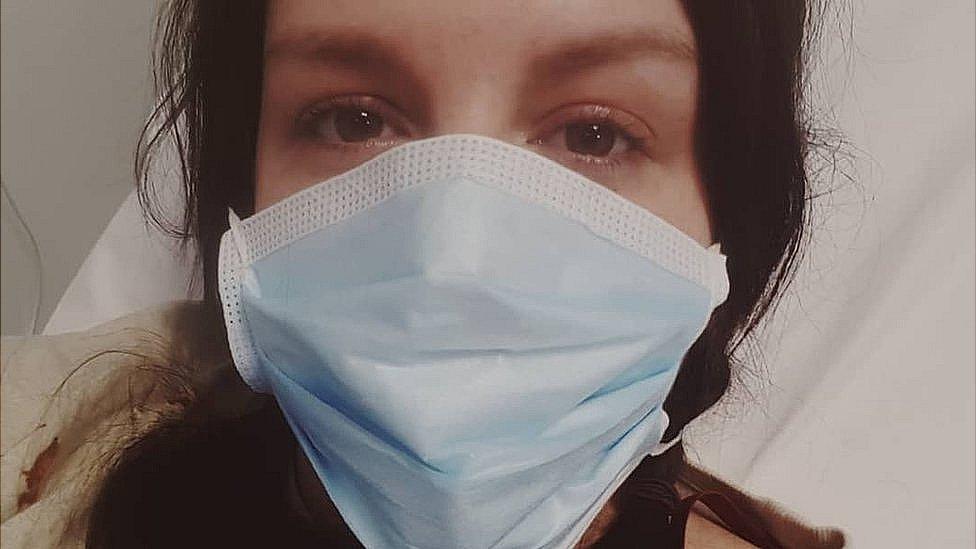
Jessie Clark was hospitalised after she struggled with her breathing.
While the number of coronavirus deaths has risen above 2,000 in the UK, most people who contract the virus go on to get better.
Some people experience relatively mild symptoms, or even no symptoms at all. Others have no option but hospital treatment. We have spoken to three people who were hospitalised after developing Covid-19.
All are at different stages of their lives, and are recovering in isolation.
'I was fighting for mine and my baby's life'
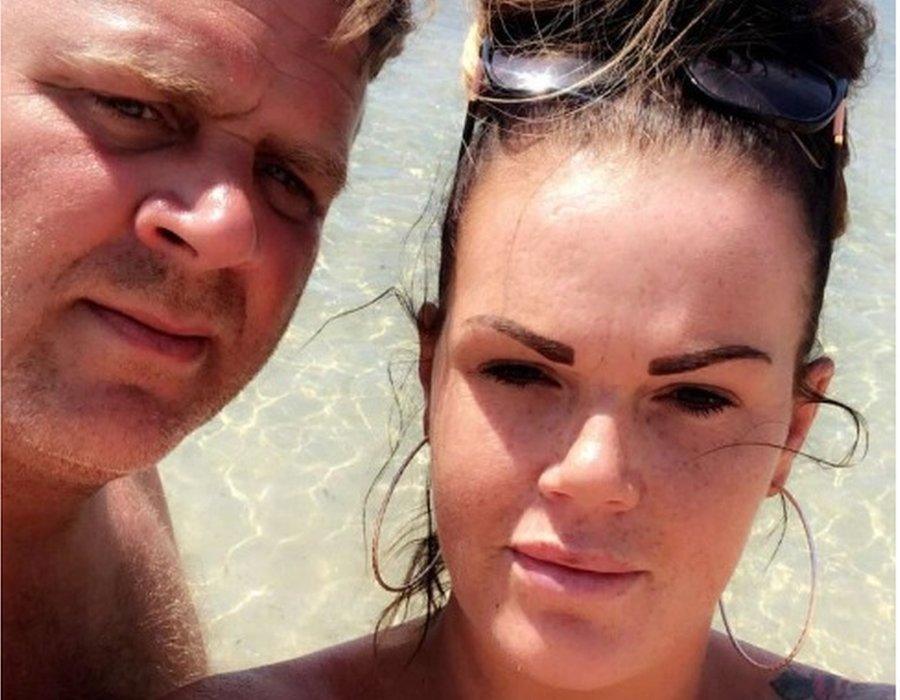
Karen Mannering with her husband before she contracted Covid-19.
Karen Mannering from Herne Bay in Kent is six months pregnant with her fourth child. The 39-year-old started struggling with a persistent cough and a fever during the second week of March, but hospital staff were wary of bringing her in. On day 11, that changed.
"I called 999 and my breathing sounded so bad an ambulance was at our house within minutes," explains Karen. "I was literally gasping for air so they put me on oxygen straight away."
Karen tested positive for Covid-19. She had pneumonia in both of her lungs and was isolated in a hospital room for a week.
"No one was allowed to come and see me," she says. "It was a very lonely, dark time. I was bed-bound for two or three days. I couldn't even go to the toilet. If they needed to change the bed sheets, they would have to turn me over.
"When I struggled to breathe, I would buzz for help and would have to wait for staff to get their protective equipment on before they could attend to me. I was constantly on the phone to my family to keep me calm. I was scared I was going to die and my family say they had prepared for the worst.
"I was fighting for every single breath. I was fighting for mine and my baby's life."
Karen says she will never forget the feeling of crisp, cold air on her face the day she left hospital.
"My husband and I drove home with our face masks on and the windows open," she says. "The breeze felt amazing. I suddenly appreciated the smallest of things."
Karen is now self-isolating at home, but in a room away from the rest of her family. She is getting stronger, but still has a dry cough which could last months.
She believes she could have contracted coronavirus at the beauty salon where she works, but she may never know for sure. She may also never know how her family seems to have escaped the virus.
"I just wanted someone to help me"
Jessie Clark from Sheffield knew she would be vulnerable if she contracted Covid-19 - she has chronic kidney disease and five years ago had a kidney removed. When the 26-year-old started coughing and becoming increasingly breathless she started to worry. Within days, she was struggling to walk.

Jessie Clark was hospitalised after she struggled with her breathing.
"I also had a lot of pain in my ribs, back and abdomen," explains Jessie. "I felt like I had been beaten up."
Two days after Prime Minister Boris Johnson announced the UK was going into lockdown, Jessie's fiance Tom drove her to A&E. They were quickly separated because of safety restrictions.
"I was scared to be alone, but I was so poorly I just wanted someone to help me," Jessie says. "I was given a green mask with a wired bit around the nose to keep it up. I was taken to a unit which seemed to be being used for Covid-19 patients. Social distancing was in place so we had bays separated by walls with a bed in each bay.
"I wasn't tested for Covid-19. My doctor told they 'couldn't swab everyone, but it was safe to assume I had it'. He said the pain I was experiencing was the inflammation from my lungs and that I should keep self-isolating and taking painkillers.
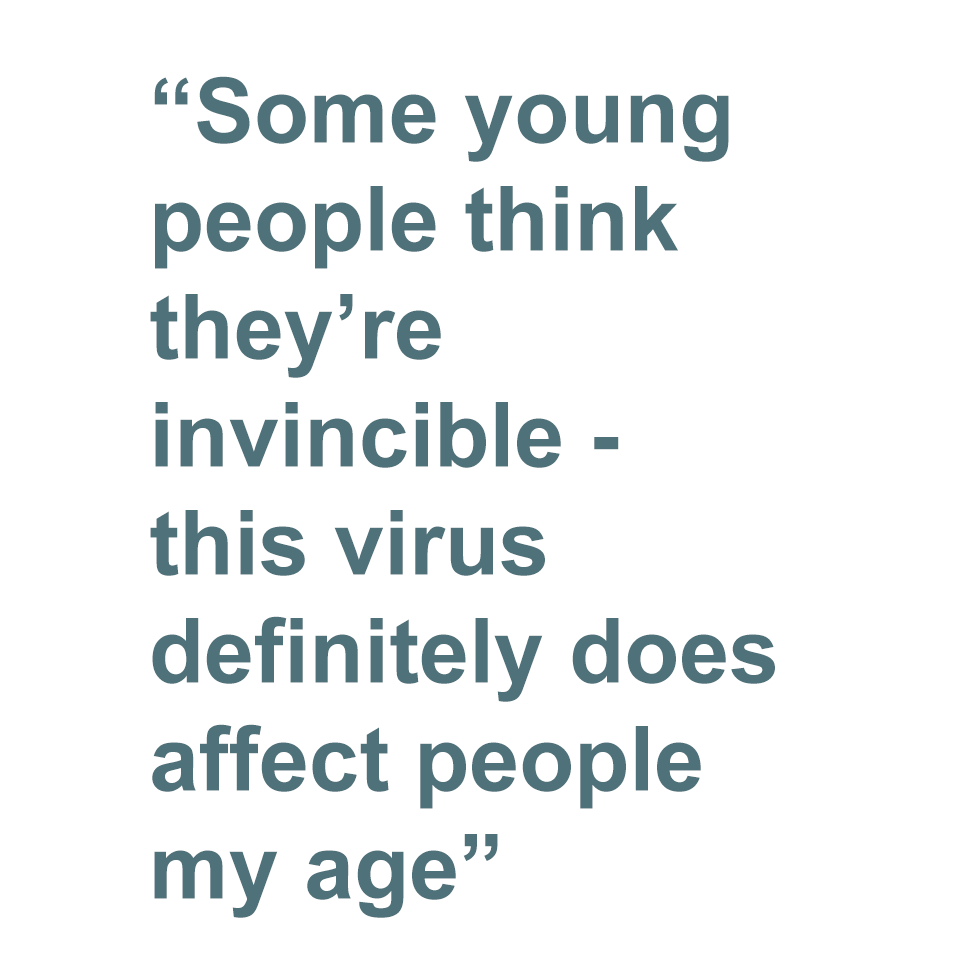
"I have never had breathing issues before. It is scary not knowing if you are going to stop breathing or if what you are feeling is normal for the virus."
Jessie was in hospital for six hours. Tom waited for his fiancé in the car park, unsure what was happening. He is a key worker and the couple think he may be asymptomatic and accidentally gave Jessie the virus.
Five days after leaving hospital, Jessie still struggles to walk and sleeps up to 18 hours a day. She sometimes has coughing fits but can breathe more easily.
"I think some young people think they're invincible, but most are taking coronavirus seriously now," she said. "There has been a lot of information telling us this virus doesn't affect people my age, but it definitely does."
"I was within a whisper of a very dark place"
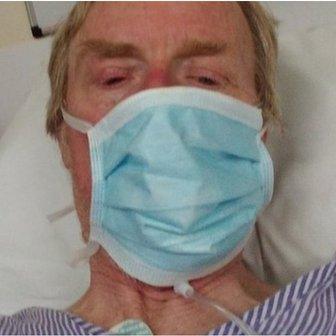
Stewart Boyle says he could feel the virus attack his lungs, making it difficult to breathe.
Stewart Boyle is almost certain he contracted coronavirus at one of his choir meetings a few weeks ago.
"We were all social distancing when we met on the Thursday, but by Sunday a high number of people had come down with flu-like symptoms," he says.
Over the following 10 days, the 64-year-old's health declined.
"It's quite subtle at first," he explains. "But then I would try to climb the stairs and be wheezing like an old man. Soon I didn't have the ability to exercise or move at all. The virus was attacking my lungs and I was losing the capacity to fight back."
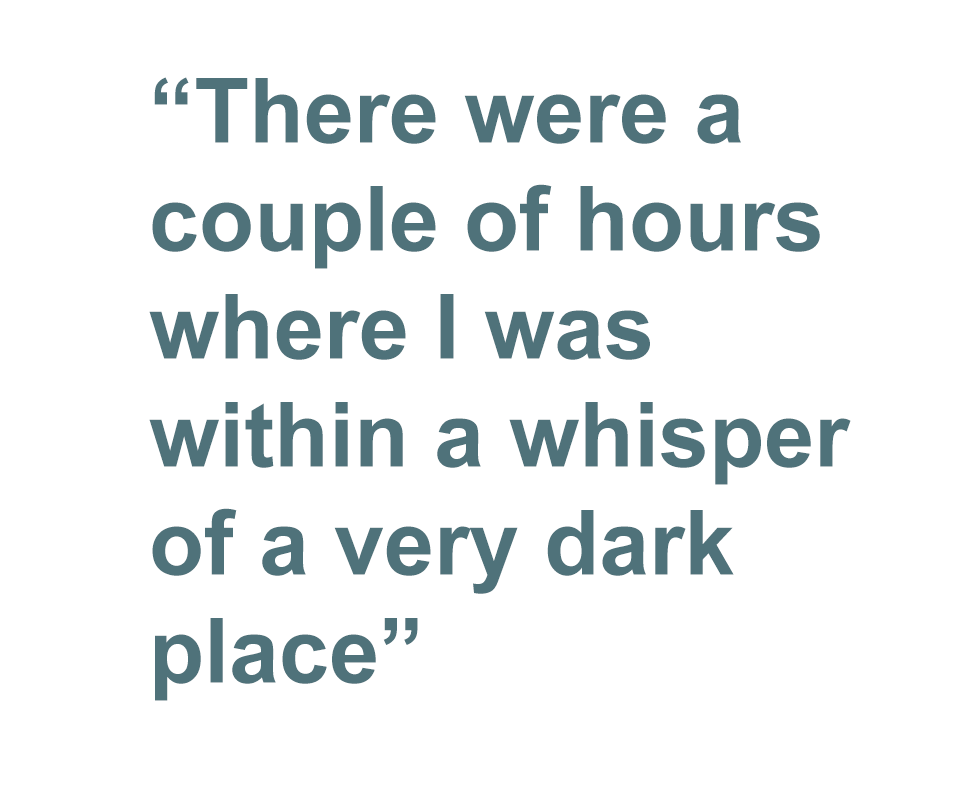
Stewart's family called 111 and he was taken to hospital.
"It was like something out of a movie," he says. "I was wheeled into the 'red zone' and there were loads of tests being carried out and swabs being taken. They thought I had coronavirus so they upped my oxygen. There were a couple of hours where I was within a whisper of a very dark place and I thought, 'maybe my time is up'. But I wanted to live.
"I could feel the battle in my lungs and it required all my reserves to get through it. The extra oxygen gave my lungs a break and gave me the added energy to push out the disease. The NHS staff were incredible, but all they can do is help you fight the virus. There's no vaccination or magical potion that can save you. It's about your own resilience."
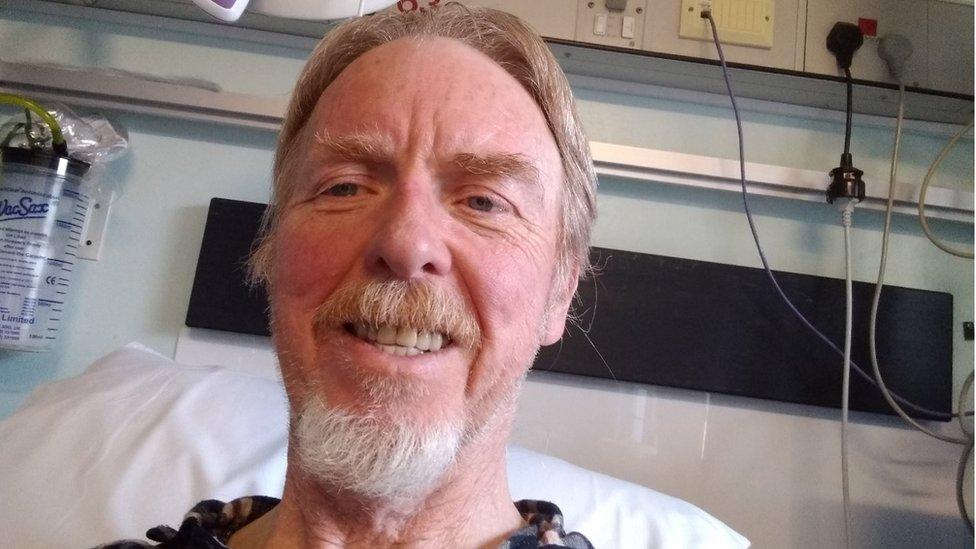
Stewart Boyle in hospital.
On Saturday, Stewart left hospital and is now self-isolating at home. He has been drinking a lot of water to help his lungs and throat recover.
Meanwhile, his choir has performed a special song for him via Zoom.
"The song was about looking after me and holding me. It was stunning," he says. "I'm a long way off to getting my singing voice back. All I can do right now is croak."